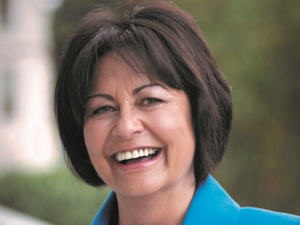

<p><img class=" alignright size-full wp-image-1647" src="http://schoolnewsnz.fastrackdev.com/wp-content/uploads/2015/07/SND17-wk5-NCEA-Hekia_Parata_300x225.jpg" alt="SND17-wk5-NCEA-Hekia Parata 300x225" style="margin: 5px; float: right;" width="300" height="225" />Education Minister Hekia Parata says a regional breakdown showing the proportion of 18 year-olds with NCEA Level 2 rising in each of the country&#8217;s 16 local body regions is exciting.</p>
<p> <!--more--> </p>
<p>The breakdown shows that between 2011 and 2014 the percentage of 18 year-olds with NCEA Level 2 rose by between 3.8 percentage points and 18.4 percentage points on a regional basis.</p>
<p>The information is contained in Public Achievement Information released last Thursday to give students, parents, educators and communities a picture of what is happening in their regions and nationally.</p>
<p>The information also shows that primary school achievement in writing and mathematics has increased in 15 of the 16 regions since 2011, that achievement in reading is up in 13 of the regions and that early childhood education participation rates have increased in 14 of the 16 regions.</p>
<p>&#8220;The numbers are great news for kids and their parents and a tribute to them and their teachers,&#8221; Ms Parata says.</p>
<p>&#8220;They mean kids are starting school better prepared and leaving better qualified.</p>
<p>&#8220;The National Standards data, which measures progress at primary and intermediate level, also means teachers are better able to identify and meet student needs.</p>
<p>&#8220;I am particularly pleased by the progress in areas such as the West Coast, Gisborne and Northland where the percentage of 18 year-olds with NCEA Level 2, or an equivalent qualification, has risen by between 11.7 and 18.4 percentage points.&#8221;</p>
<p>Ms Parata says public information about education system performance is vital for students, educators, iwi, parents and employers.</p>
<p>&#8220;It helps parents and iwi understand how their children&#8217;s schools are performing, helps teachers provide the right support to the right students and assists schools, employers and training providers to work out what skills are needed to boost local economic performance.&#8221;</p>
<p>For more information visit <strong><a href="http://www.educationcounts.govt.nz" target="_blank">www.educationcounts.govt.nz</a> ;</strong></p>

EXCLUSIVE: Teachers used to be paid two to three times more than minimum wage workers,…
After an “overwhelming” vote to reject the latest Government offer, secondary school teachers will begin…
Second-language learning should be compulsory, says a new report from a forum bringing together academics,…
A new entitlement aimed to improve access to learning support coordinators for schools with students…
Educators have raised questions about the Ministry of Education’s new secondary school subjects, set to…
Professional learning and development (PLD) for teachers needs to be higher impact for teachers and…
This website uses cookies.